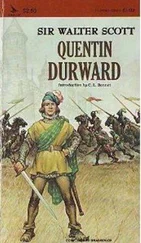Walter Scott - My Aunt Margaret's Mirror
Здесь есть возможность читать онлайн «Walter Scott - My Aunt Margaret's Mirror» весь текст электронной книги совершенно бесплатно (целиком полную версию без сокращений). В некоторых случаях можно слушать аудио, скачать через торрент в формате fb2 и присутствует краткое содержание. Жанр: Классическая проза, на английском языке. Описание произведения, (предисловие) а так же отзывы посетителей доступны на портале библиотеки ЛибКат.
- Название:My Aunt Margaret's Mirror
- Автор:
- Жанр:
- Год:неизвестен
- ISBN:нет данных
- Рейтинг книги:3 / 5. Голосов: 1
-
Избранное:Добавить в избранное
- Отзывы:
-
Ваша оценка:
- 60
- 1
- 2
- 3
- 4
- 5
My Aunt Margaret's Mirror: краткое содержание, описание и аннотация
Предлагаем к чтению аннотацию, описание, краткое содержание или предисловие (зависит от того, что написал сам автор книги «My Aunt Margaret's Mirror»). Если вы не нашли необходимую информацию о книге — напишите в комментариях, мы постараемся отыскать её.
My Aunt Margaret's Mirror — читать онлайн бесплатно полную книгу (весь текст) целиком
Ниже представлен текст книги, разбитый по страницам. Система сохранения места последней прочитанной страницы, позволяет с удобством читать онлайн бесплатно книгу «My Aunt Margaret's Mirror», без необходимости каждый раз заново искать на чём Вы остановились. Поставьте закладку, и сможете в любой момент перейти на страницу, на которой закончили чтение.
Интервал:
Закладка:
They were sent by the celebrated Earl of Stair, and contained the melancholy event of a duel betwixt Sir Philip Forester and his wife's half-brother, Captain Falconer, of the Scotch-Dutch, as they were then called, in which the latter had been killed. The cause of quarrel rendered the incident still more shocking. It seemed that Sir Philip had left the army suddenly, in consequence of being unable to pay a very considerable sum which he had lost to another volunteer at play. He had changed his name, and taken up his residence at Rotterdam, where he had insinuated himself into the good graces of an ancient and rich burgomaster, and, by his handsome person and graceful manners, captivated the affections of his only child, a very young person, of great beauty, and the heiress of much wealth. Delighted with the specious attractions of his proposed son-in-law, the wealthy merchant—whose idea of the British character was too high to admit of his taking any precaution to acquire evidence of his condition and circumstances—gave his consent to the marriage. It was about to be celebrated in the principal church of the city, when it was interrupted by a singular occurrence.
Captain Falconer having been detached to Rotterdam to bring up a part of the brigade of Scottish auxiliaries, who were in quarters there, a person of consideration in the town, to whom he had been formerly known, proposed to him for amusement to go to the high church to see a countryman of his own married to the daughter of a wealthy burgomaster. Captain Falconer went accordingly, accompanied by his Dutch acquaintance, with a party of his friends, and two or three officers of the Scotch brigade. His astonishment may be conceived when he saw his own brother-in-law, a married man, on the point of leading to the altar the innocent and beautiful creature upon whom he was about to practise a base and unmanly deceit. He proclaimed his villainy on the spot, and the marriage was interrupted, of course. But against the opinion of more thinking men, who considered Sir Philip Forester as having thrown himself out of the rank of men of honour, Captain Falconer admitted him to the privilege of such, accepted a challenge from him, and in the rencounter received a mortal wound. Such are the ways of Heaven, mysterious in our eyes. Lady Forester never recovered the shock of this dismal intelligence.
"And did this tragedy," said I, "take place exactly at the time when the scene in the mirror was exhibited?"
"It is hard to be obliged to maim one's story," answered my aunt, "but to speak the truth, it happened some days sooner than the apparition was exhibited."
"And so there remained a possibility," said I, "that by some secret and speedy communication the artist might have received early intelligence of that incident."
"The incredulous pretended so," replied my aunt.
"What became of the adept?" demanded I.
"Why, a warrant came down shortly afterwards to arrest him for high treason, as an agent of the Chevalier St. George; and Lady Bothwell, recollecting the hints which had escaped the doctor, an ardent friend of the Protestant succession, did then call to remembrance that this man was chiefly PRONE among the ancient matrons of her own political persuasion. It certainly seemed probable that intelligence from the Continent, which could easily have been transmitted by an active and powerful agent, might have enabled him to prepare such a scene of phantasmagoria as she had herself witnessed. Yet there were so many difficulties in assigning a natural explanation, that, to the day of her death, she remained in great doubt on the subject, and much disposed to cut the Gordian knot by admitting the existence of supernatural agency."
"But, my dear aunt," said I, "what became of the man of skill?"
"Oh, he was too good a fortune-teller not to be able to foresee that his own destiny would be tragical if he waited the arrival of the man with the silver greyhound upon his sleeve. He made, as we say, a moonlight flitting, and was nowhere to be seen or heard of. Some noise there was about papers or letters found in the house; but it died away, and Doctor Baptista Damiotti was soon as little talked of as Galen or Hippocrates."
"And Sir Philip Forester," said I, "did he too vanish for ever from the public scene?"
"No," replied my kind informer. "He was heard of once more, and it was upon a remarkable occasion. It is said that we Scots, when there was such a nation in existence, have, among our full peck of virtues, one or two little barley-corns of vice. In particular, it is alleged that we rarely forgive, and never forget, any injuries received—that we make an idol of our resentment, as poor Lady Constance did of her grief, and are addicted, as Burns says, to 'nursing our wrath to keep it warm.' Lady Bothwell was not without this feeling; and, I believe, nothing whatever, scarce the restoration of the Stewart line, could have happened so delicious to her feelings as an opportunity of being revenged on Sir Philip Forester for the deep and double injury which had deprived her of a sister and of a brother. But nothing of him was heard or known till many a year had passed away.
"At length—it was on a Fastern's E'en (Shrovetide) assembly, at which the whole fashion of Edinburgh attended, full and frequent, and when Lady Bothwell had a seat amongst the lady patronesses, that one of the attendants on the company whispered into her ear that a gentleman wished to speak with her in private.
"'In private? and in an assembly room?—he must be mad. Tell him to call upon me to-morrow morning.'
"'I said so, my lady,' answered the man, 'but he desired me to give you this paper.'
"She undid the billet, which was curiously folded and sealed. It only bore the words, 'ON BUSINESS OF LIFE AND DEATH,' written in a hand which she had never seen before. Suddenly it occurred to her that it might concern the safety of some of her political friends. She therefore followed the messenger to a small apartment where the refreshments were prepared, and from which the general company was excluded. She found an old man, who, at her approach, rose up and bowed profoundly. His appearance indicated a broken constitution, and his dress, though sedulously rendered conforming to the etiquette of a ballroom, was worn and tarnished, and hung in folds about his emaciated person. Lady Bothwell was about to feel for her purse, expecting to get rid of the supplicant at the expense of a little money, but some fear of a mistake arrested her purpose. She therefore gave the man leisure to explain himself.
"'I have the honour to speak with the Lady Bothwell?'
"'I am Lady Bothwell; allow me to say that this is no time or place for long explanations. What are your commands with me?'
"'Your ladyship,' said the old man, 'had once a sister.'
"'True; whom I loved as my own soul.'
"'And a brother.'
"'The bravest, the kindest, the most affectionate!' said Lady Bothwell.
"'Both these beloved relatives you lost by the fault of an unfortunate man,' continued the stranger.
"'By the crime of an unnatural, bloody-minded murderer,' said the lady.
"'I am answered,' replied the old man, bowing, as if to withdraw.
"'Stop, sir, I command you,' said Lady Bothwell. 'Who are you that, at such a place and time, come to recall these horrible recollections? I insist upon knowing.'
"'I am one who intends Lady Bothwell no injury, but, on the contrary, to offer her the means of doing a deed of Christian charity, which the world would wonder at, and which Heaven would reward; but I find her in no temper for such a sacrifice as I was prepared to ask.'
"'Speak out, sir; what is your meaning?' said Lady Bothwell.
"'The wretch that has wronged you so deeply,' rejoined the stranger, 'is now on his death-bed. His days have been days of misery, his nights have been sleepless hours of anguish—yet he cannot die without your forgiveness. His life has been an unremitting penance—yet he dares not part from his burden while your curses load his soul.'
Читать дальшеИнтервал:
Закладка:
Похожие книги на «My Aunt Margaret's Mirror»
Представляем Вашему вниманию похожие книги на «My Aunt Margaret's Mirror» списком для выбора. Мы отобрали схожую по названию и смыслу литературу в надежде предоставить читателям больше вариантов отыскать новые, интересные, ещё непрочитанные произведения.
Обсуждение, отзывы о книге «My Aunt Margaret's Mirror» и просто собственные мнения читателей. Оставьте ваши комментарии, напишите, что Вы думаете о произведении, его смысле или главных героях. Укажите что конкретно понравилось, а что нет, и почему Вы так считаете.










